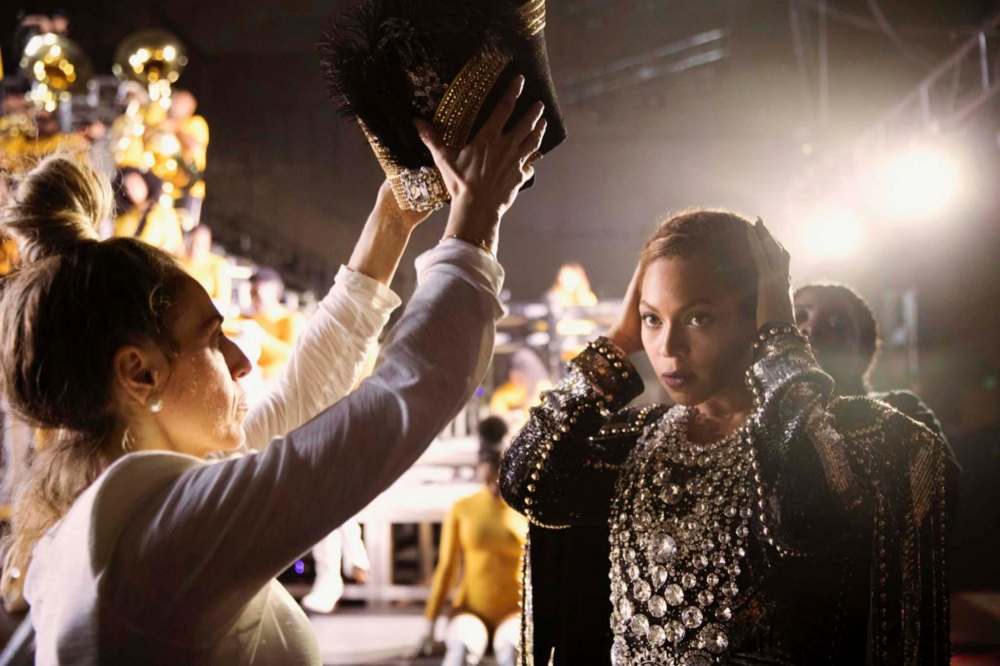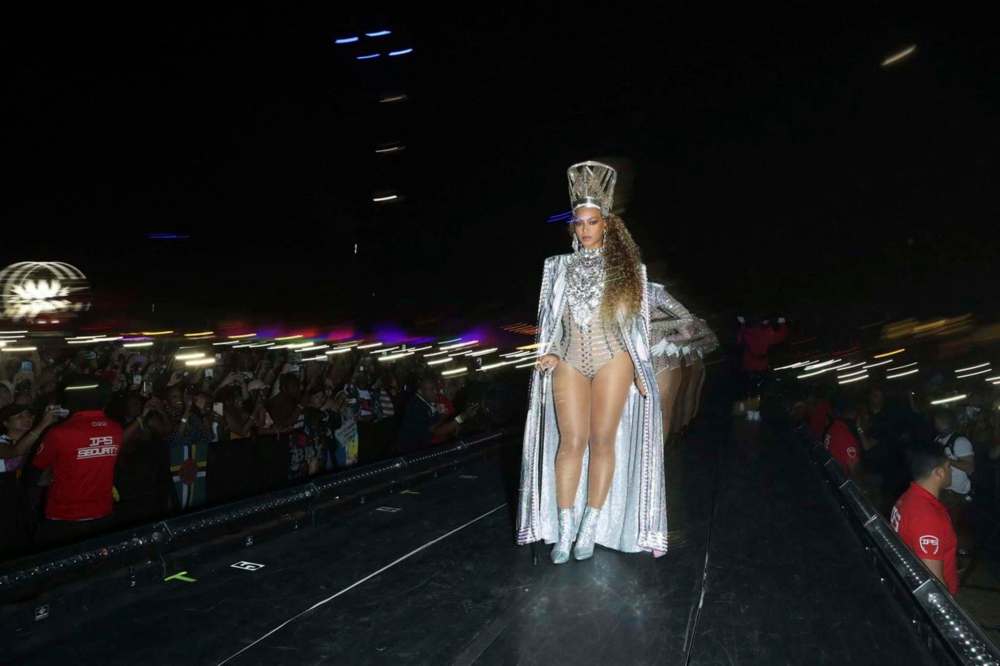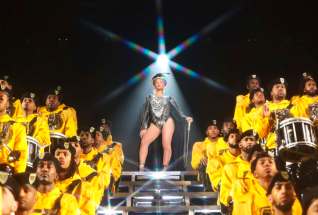The queen of determination Motherhood proves heavy for Beyoncé, even after weight comes off for Homecoming
Read this article for free:
or
Already have an account? Log in here »
To continue reading, please subscribe:
Monthly Digital Subscription
$0 for the first 4 weeks*
- Enjoy unlimited reading on winnipegfreepress.com
- Read the E-Edition, our digital replica newspaper
- Access News Break, our award-winning app
- Play interactive puzzles
*No charge for 4 weeks then price increases to the regular rate of $19.00 plus GST every four weeks. Offer available to new and qualified returning subscribers only. Cancel any time.
Monthly Digital Subscription
$4.75/week*
- Enjoy unlimited reading on winnipegfreepress.com
- Read the E-Edition, our digital replica newspaper
- Access News Break, our award-winning app
- Play interactive puzzles
*Billed as $19 plus GST every four weeks. Cancel any time.
To continue reading, please subscribe:
Add Free Press access to your Brandon Sun subscription for only an additional
$1 for the first 4 weeks*
*Your next subscription payment will increase by $1.00 and you will be charged $16.99 plus GST for four weeks. After four weeks, your payment will increase to $23.99 plus GST every four weeks.
Read unlimited articles for free today:
or
Already have an account? Log in here »
Hey there, time traveller!
This article was published 22/04/2019 (2422 days ago), so information in it may no longer be current.
When Beyoncé first takes a stage, she literally takes your breath away.
TV review
Homecoming: A Film by Beyoncé
Netflix
★★★★ out of five
I was still reviewing music when Beyoncé and Jay-Z brought their co-headlining spectacle to Investors Group Field in 2014. I remember being absolutely knocked out by her before she even opened her mouth to sing, writing that “her eyes practically burned holes through the Jumbotron.”
It’s not because she’s extraordinarily beautiful, although she is that. Rather, it’s her raw power, strength and determination — the way she commands the attention of thousands of people with a single look, one that challenges you to underestimate her. Listen: they call her Queen Bey for a reason.
I had that sensation again watching Homecoming, the hybrid concert film/documentary that arrived on Netflix last Wednesday, documenting her landmark headlining performance at Coachella in 2018.
https://www.youtube.com/watch?v=fB8qvx0HOlI
Beyoncé was the first black woman to headline the massive California music festival, and the concert itself was a meticulously and passionately choreographed two-hour, 26-song celebration of black culture — in particular, that of the United States’ historically black colleges and universities. The dancers and musicians she shared the stage with were beautiful in their diversity and talent. It was a show for the books.

“Beychella,” as the performance is now known, also happened less than a year after she gave birth to her twins Sir and Rumi. And, as she discloses in the documentary portions of the film in a surrealist voiceover, she went through hell and back to get her homecoming.
The juxtaposition between the electrifying, finished product and the gruelling eight months of rehearsal it took to get there puts into stark relief just what it takes to put together a concert of that calibre — especially if you’re also healing from an emergency C-section.
Beyoncé was originally supposed to appear at Coachella in 2017 but had to postpone because of her unexpected pregnancy, which was filled with a host of scary complications — including pre-eclampsia, a potentially life-threatening condition characterized by high blood pressure.
Then there’s the footage of that gruelling first post-pregnancy rehearsal where you can see, in her eyes, that she barely recognizes herself. “There were days I thought I’d never be the same,” she says.
It’s an unusually vulnerable admission for a woman whose public image is so tightly controlled. She’s sharing on her terms, of course — this is “a film by Beyoncé” — but it’s a welcome peek behind the curtain. Beyoncé does not, in fact, wake up like this.

To that end, she also discloses the punishing diet she went on in preparation for Beychella, cutting out bread, carbs, sugar, dairy, meat, fish and alcohol. “And I’m hungry,” she admits.
On one hand, it’s sad to see one of the most powerful women in the world use extreme methods to shrink herself back into an old costume — and then celebrate it as an “achievement,” one that pales compared to all her many, many others.
But on the other hand, it’s a reminder that not even Beyoncé is immune to the pressure women — and especially high-profile, public women — face after giving birth.

At least Beyoncé is honest about what it takes to move a huge amount of weight in a short amount of time: there is no coy answer about “eating whatever I want” and “chasing after toddlers.”
She doesn’t glorify it, either. “I definitely pushed myself further than I knew I could,” she says. “And I’ve learned a very valuable lesson: I will never, never push myself that far again.”
In Homecoming, Beyoncé doesn’t make it look effortless. She wants us to know just how much sweat and sacrifice it takes to be queen.
Most of us will never know what it’s like to perform at that level under that kind of pressure, but the core of her struggles are familiar to women: trying to get comfortable in an unfamiliar, changed body; balancing a crushing workload with the exhaustion and joy of new motherhood; slaying all day to not only meet a goal but exceed it; growing, and recognizing that even if you can fit into an old costume, you might have outgrown it anyway.
“I feel like I’m just a new woman, in a new chapter of my life and I’m not even trying to be who I was,” she says later in the film.
They say you can never really go home again. Homecoming isn’t so much a return as it is a rebirth.
jen.zoratti@freepress.mb.ca Twitter: @JenZoratti

Jen Zoratti is a Winnipeg Free Press columnist and author of the newsletter, NEXT, a weekly look towards a post-pandemic future.
Our newsroom depends on a growing audience of readers to power our journalism. If you are not a paid reader, please consider becoming a subscriber.
Our newsroom depends on its audience of readers to power our journalism. Thank you for your support.










